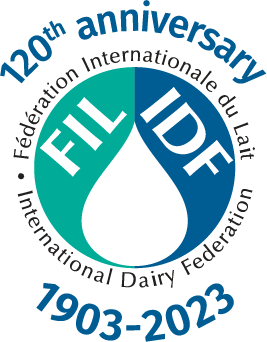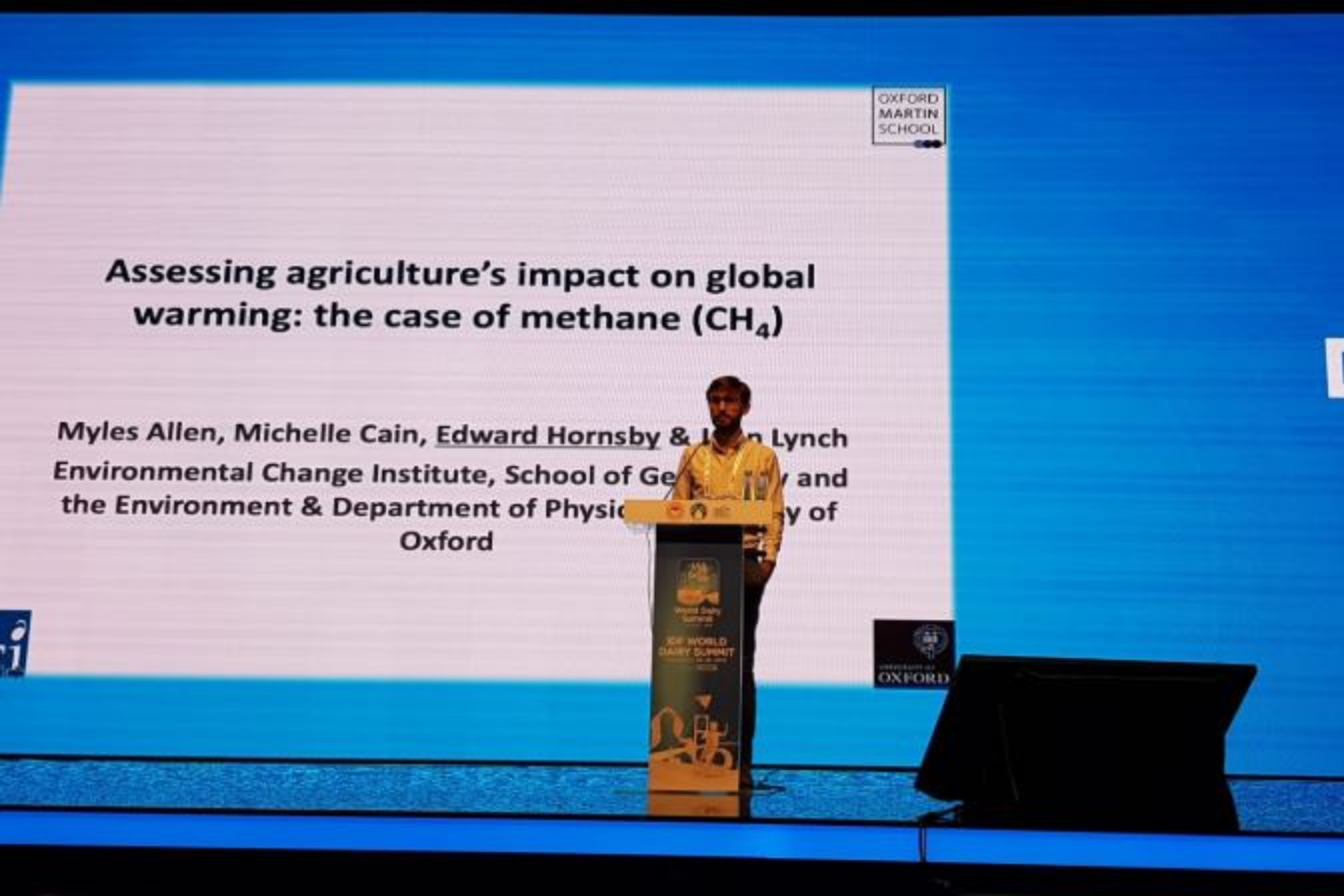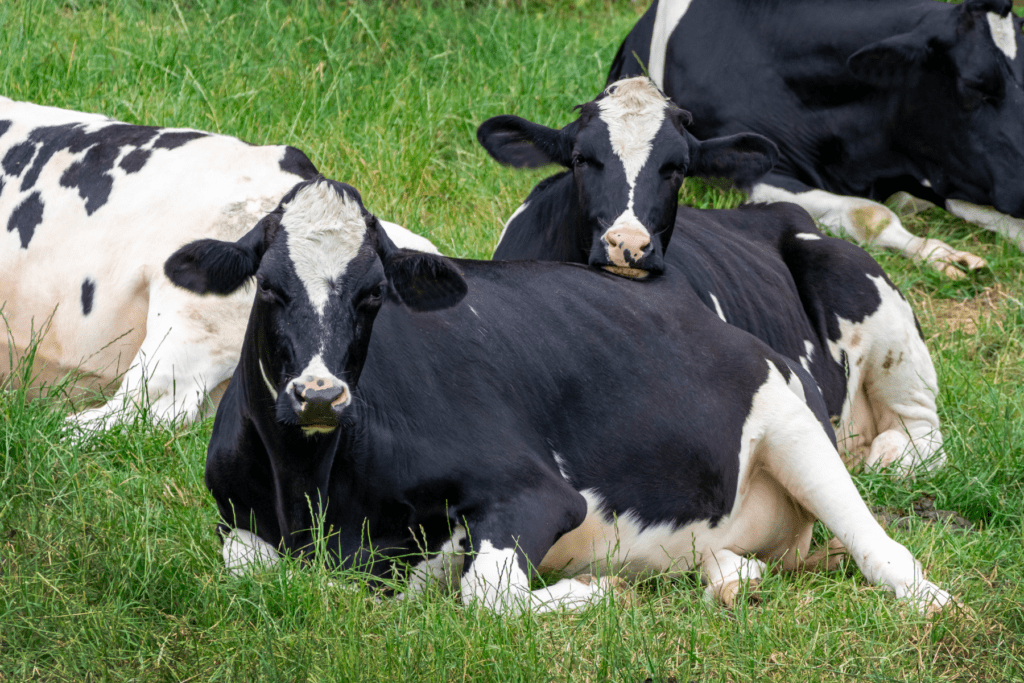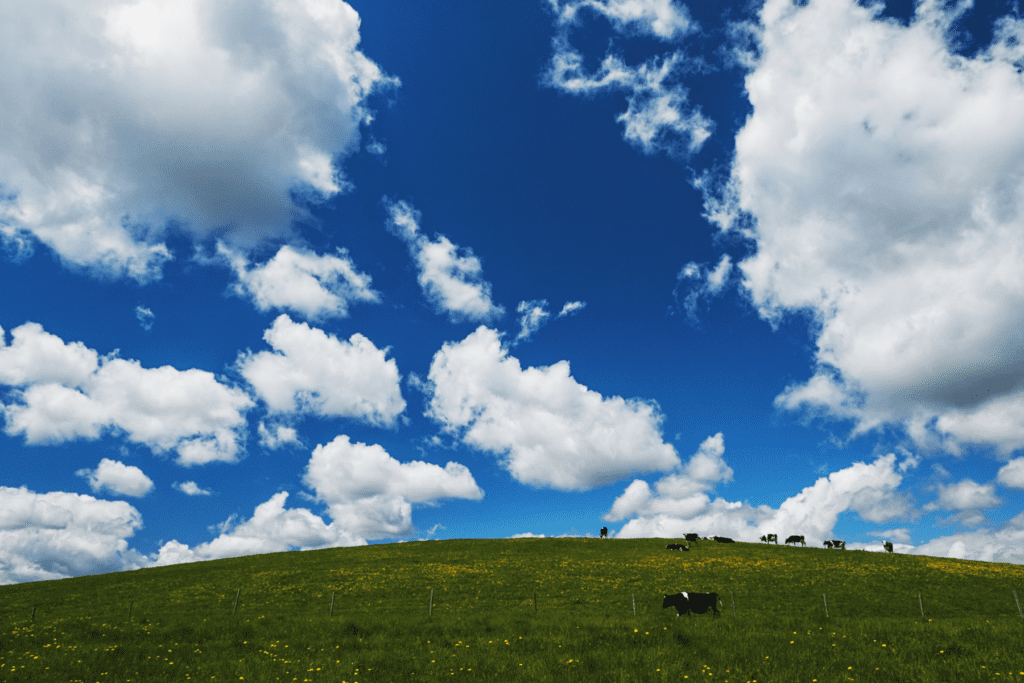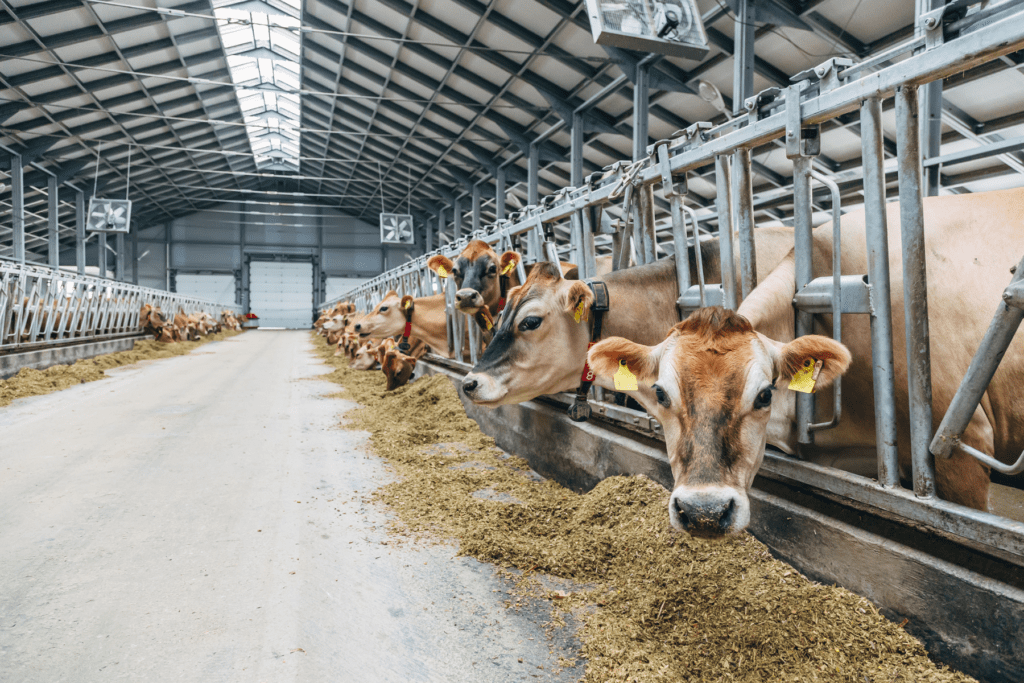Farm sustainability is key
“Farm is key to sustainability in the dairy chain. To improve sustainability, the farmer has to change practices. Key incentives include peer to peer pressure, subsidies and fines, and regulations” Alfons Beldman, Senior Researcher Wageningen Economic Research
Individual processors need assistance and incentives to achieve progress in the sustainability performance of the dairy chain. One option is to set up a good and independent monitoring system to track progress on key targets. Another important part of the work is focussing on the process to create change. The dairy sector must be built upon productive and efficient farms and value chains that generate sufficient value to enable re-investment in further improvements.
Efficient use of land and resources
“60% of the worlds crop is waste not suitable for humans. Dairy and meat are the solution to converting this into sustainable nutrition to feed the world within planetary boundaries.” Mia Lafontaine, Corporate Sustainability Manager, Nutreco
There is a need to make good use of what we have. Critics of animal agriculture suggest we could better use our farmland to grow crops (instead of raising animals) and thus reduce GHGs. However, “marginal” farmland is not conducive to growing fruits and vegetables due to poor soil nutrients and/or lack of moisture. Yet, we can use marginal agricultural land to raise ruminant livestock that is able to eat feed such as grasses that are inedible by humans and upcycle them to high-quality animal-based foods. Food security is not so much about producing enough calories, but essential micro- and macro nutrients.
Measuring accurately to make a real change
“Global warming potential can fail to accurately reflect methane contributions to global warming” Edward Hornsby, Oxford University
A new method for representing greenhouse gases (like methane) may better represent its real-world warming impact than current accounting systems. CO2-warming-equivalent (CO2 we) emissions provide a simple but accurate way of assessing the global temperature outcomes of different mitigation options, avoiding well-known problems arising from the use of conventional CO2 -equivalent (CO2-e) emissions.
Blockchain to ensure food safety and quality
“Smart packaging is one of the solutions that dairy block chain applies to fight food waste” Dr. Yasanur Kayikci, Turkish-German University, Istanbul
Dairy systems are complex and capital intensive – production is often difficult to control. Transparency and efficiency issues put stakeholders to great disadvantage. By providing end-to-end transparency and traceability, emerging technologies such as smart packaging and blockchain could help mitigate risks of food fraud and safety and minimise the amount of dairy products sent to landfill by pinpointing contaminated batches.
